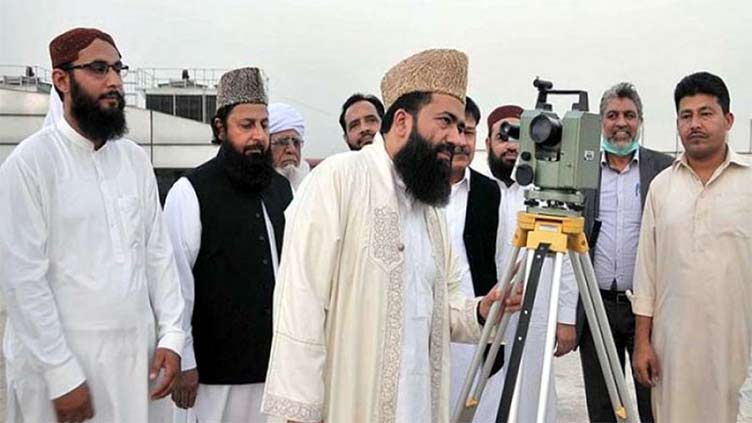NA passes bill to set up Federal Ruet-e-Hilal Committee to regulate moon sighting

Pakistan
The bill provided for a 15-member body that will function as the “Federal Ruet-e-Hilal Committee"
ISLAMABAD (News Desk) – The National Assembly on Wednesday passed the Pakistan Ruet-e-Hilal Bill 2022 reconstituting the body and suggesting penalties on those who announce the sighting of moon before the official announcement.
The bill, which had been pending in the assembly since 2021, was moved by Minister of State for Law and Justice Shahadat Awan in the absence of Religious Affairs Minister Talha Mehmood.
The bill provided for a 15-member federal committee that will function as the “Federal Ruet-e-Hilal Committee.” It will comprise two ulema each from the four provinces and one each from Islamabad, Gilgit-Baltistan and Azad Kashmir. It will also have representation from ministries of science and technology and religious affairs and the Pakistan Space and Upper Atmosphere Research Commission (Suparco). Grade 20 officers will be a part of this body.
According to the bill, ulema included in the committee will be required to have a master’s degree in Islamiat and 15 years of experience, besides a degree of Shahadatul Almiya approved by the HEC. The term of the federal committee will be three years.
The committee chairperson will be appointed on a rotational basis from the provinces and the federation and will be responsible for the decision of moon sighting.
The bill provides that violators will be fined Rs500,000 while those making false evidence of moon sighting will be imprisoned for three years and fined Rs50,000.
Any TV channel which makes announcement about the moon sighting before the official announcement by the federal committee will be fined Rs1 million or its licence will be revoked. Under the bill, provincial and district committees will also be constituted besides the federal body.
The provincial committee will comprise 13 members, Islamabad-based committee seven, while the district committees will consist of six members in which scholars from all schools of thought will have representation.
According to the bill, a master's degree in Islamiat with a 10-year experience in Sharia is mandatory for the members of Islamabad and provincial committees whereas the members of district committees will be required to have a master's degree in Islamiat with one year of experience in Sharia.
The bill will now be tabled in the Senate for approval.

